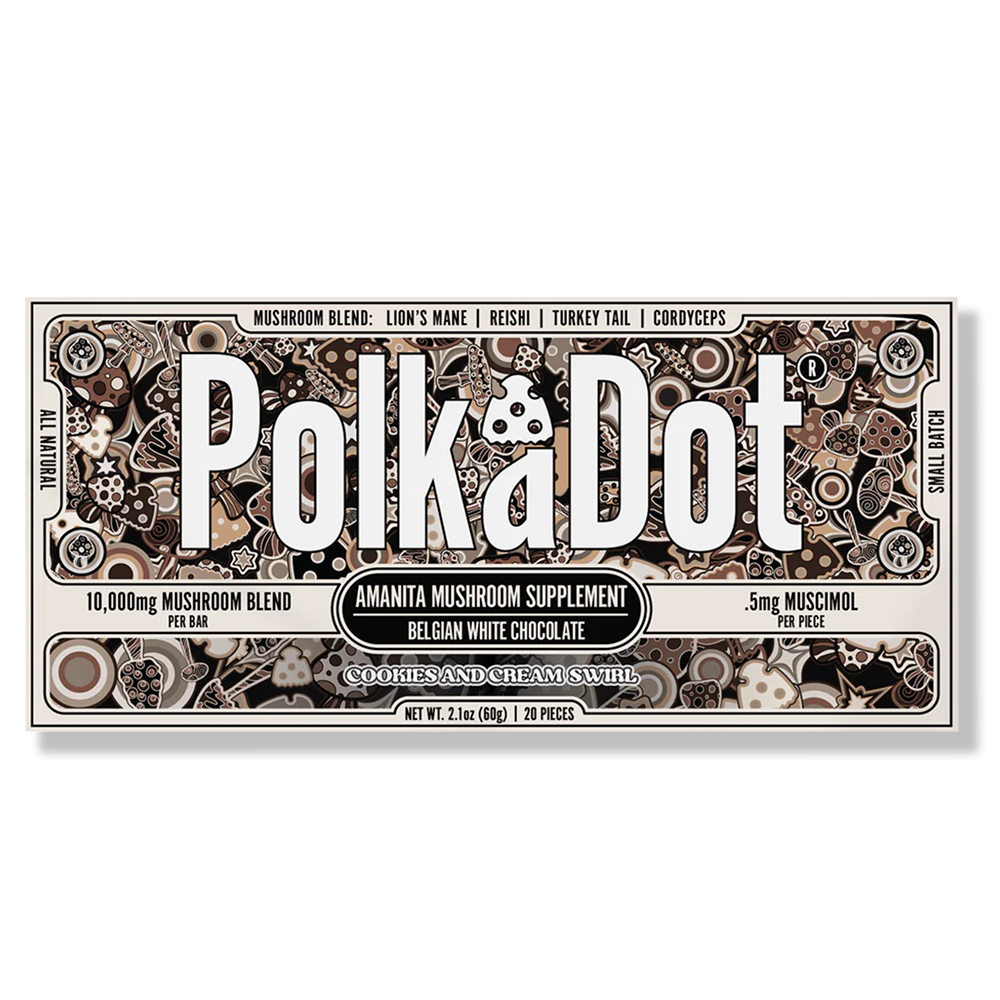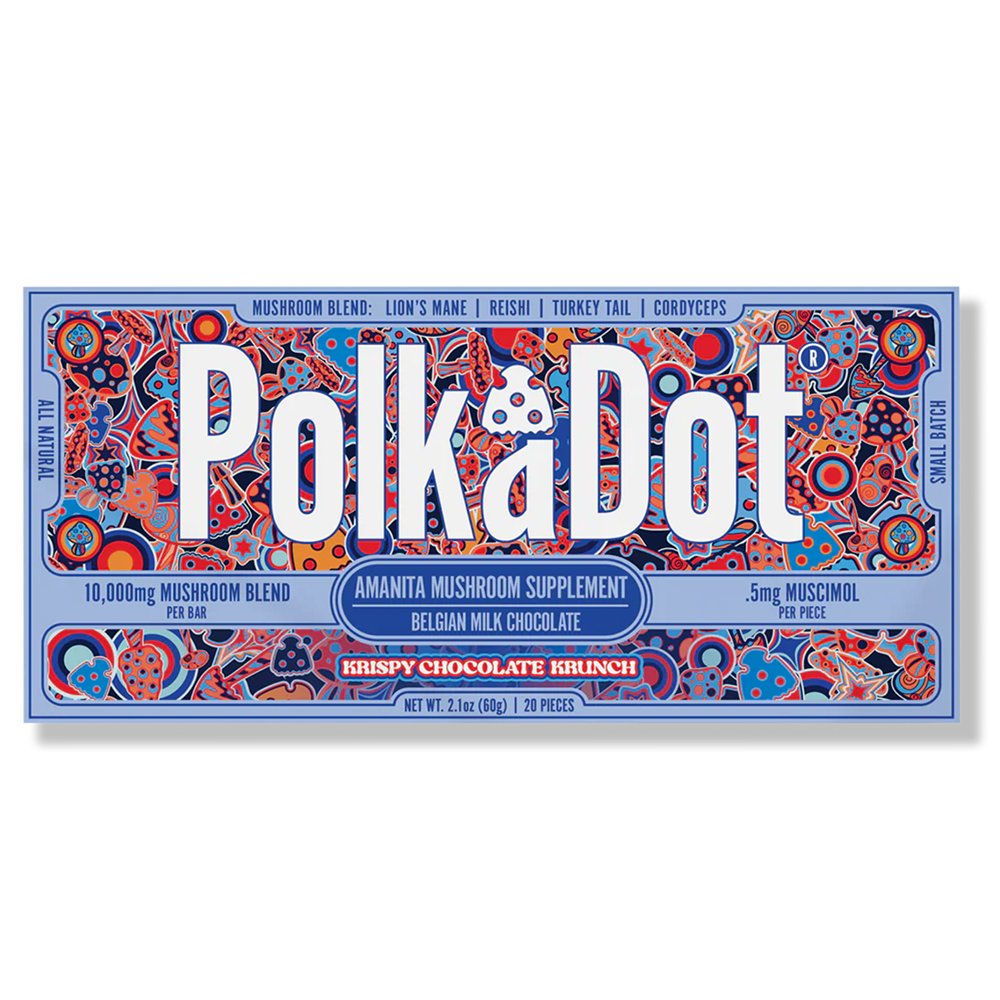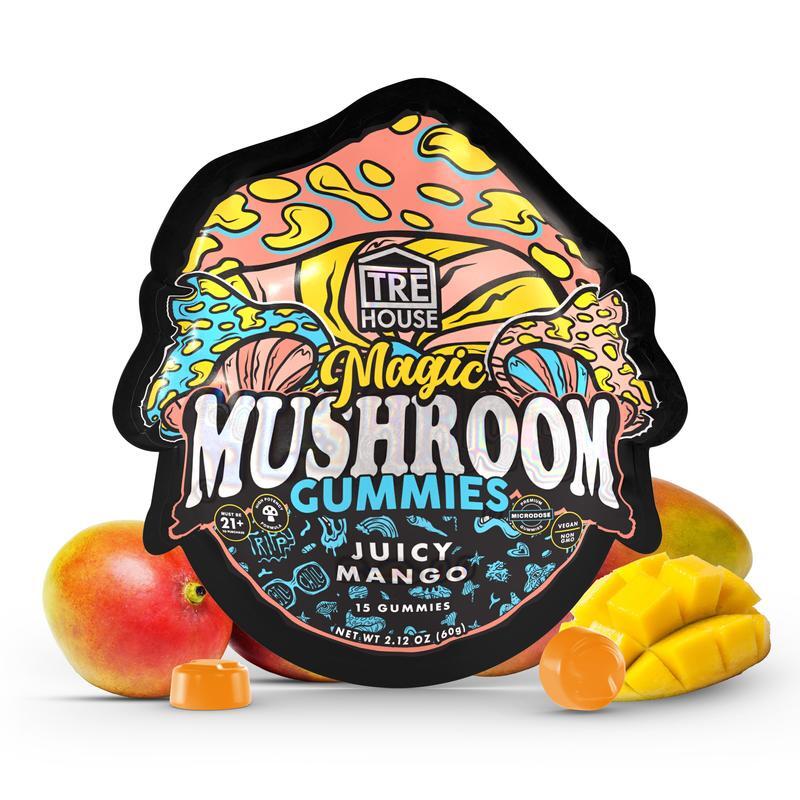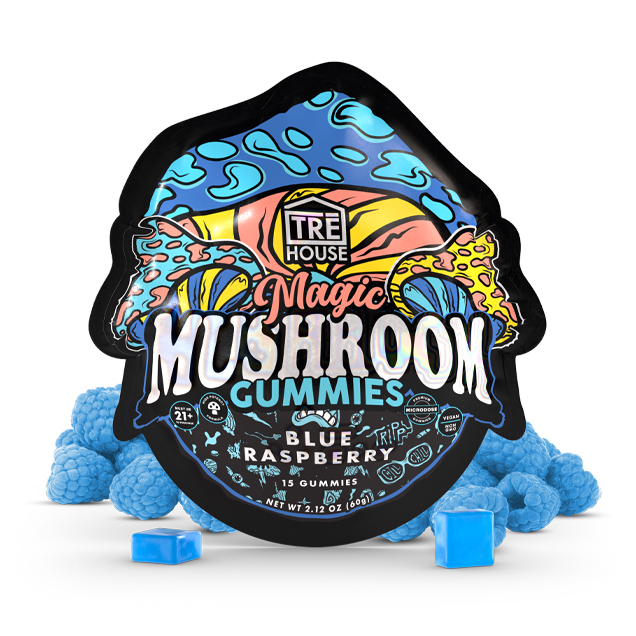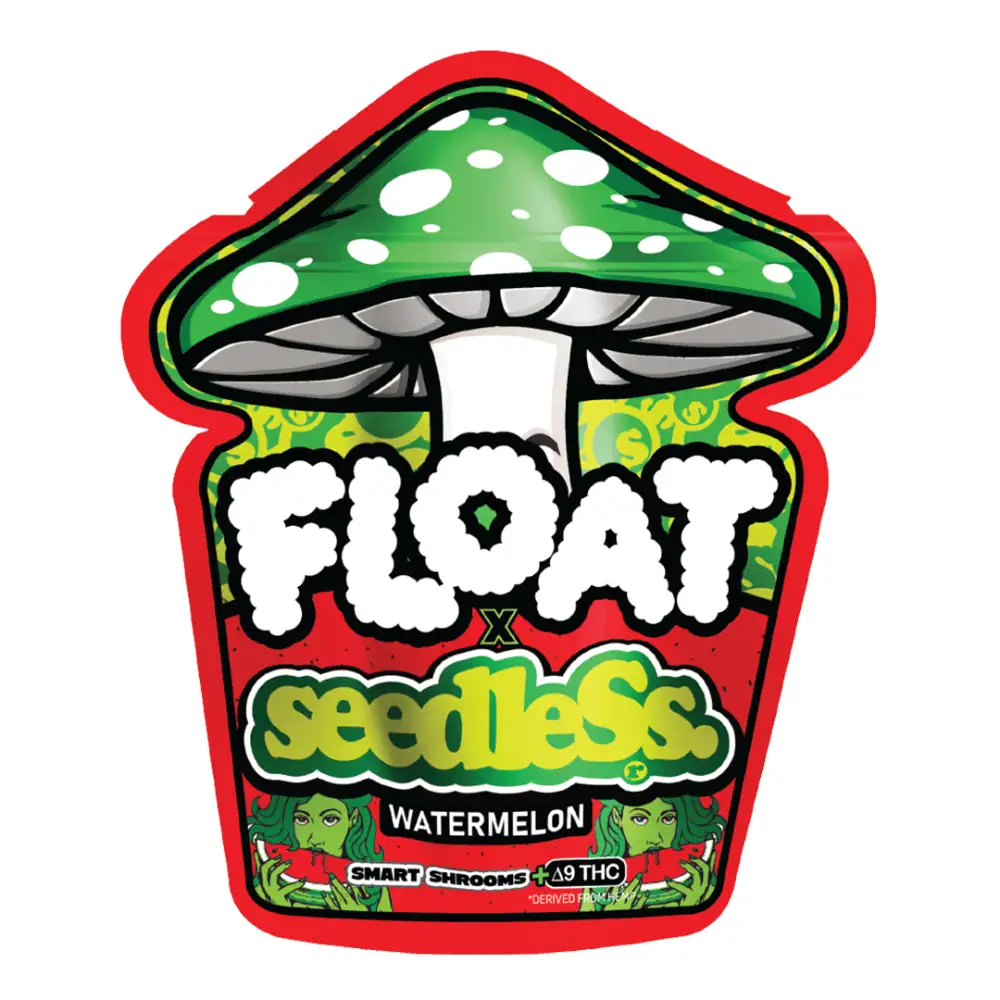Adaptogens are having a serious moment right now, and adaptogenic mushrooms are leading the charge. Whether you’re a wellness newbie or a seasoned natural health explorer, you’ve probably seen these fungi making appearances in everything from lattes to supplements. But what exactly are they? And do they really live up to the hype?
In this blog, we’ll explore the fascinating world of adaptogenic mushrooms—breaking down the science, tradition, health benefits, and practical ways to work them into your life.
What Are Adaptogenic Mushrooms?
Adaptogenic mushrooms are a category of functional fungi known for helping the body adapt to stress, support overall balance, and boost resilience. The term “adaptogen” refers to substances that assist the body in resisting physical, chemical, and biological stressors. Think of them as nature’s stress moderators.
What makes medicinal mushrooms unique among adaptogens is their biochemical complexity. These fungi are packed with polysaccharides, triterpenoids, antioxidants, and other compounds that influence the immune system, the nervous system, and even cellular function. Adaptogenic mushrooms aren’t new, either—they’ve been used for centuries in Traditional Chinese Medicine (TCM), Ayurveda, and Indigenous medicine systems around the world.
It’s important to note that adaptogenic mushrooms are not the same as psychedelic mushrooms. While psychedelic fungi like psilocybin-containing species alter consciousness, adaptogenic mushrooms do not cause hallucinations. Their effects are more subtle and cumulative, working over time to restore balance and support well-being.
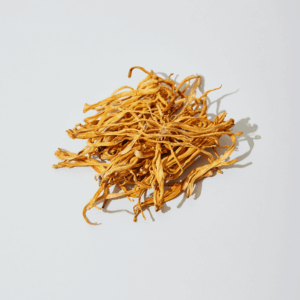
How Do Adaptogens Work?
Adaptogens work by interacting with the body’s stress response system, particularly the hypothalamic-pituitary-adrenal (HPA) axis. This system regulates cortisol production—the hormone responsible for managing how we respond to stress. When the HPA axis is under strain due to chronic stress, everything from sleep and digestion to mood and immune function can take a hit.
Adaptogens, including mushroom-based ones, help modulate this stress response. They don’t suppress or overstimulate; instead, they nudge the body back toward equilibrium. In scientific terms, they promote homeostasis. By influencing how our natural killer cells communicate during times of stress, adaptogens help minimize the physical and mental toll that stress takes.
Many adaptogenic mushrooms also possess antioxidant and anti-inflammatory properties, which further support the body’s resilience. The combined effect is a gentle yet powerful boost to your body’s natural capacity for recovery and regulation.
History of Adaptogenic Mushrooms in Traditional Medicine
The use of mushrooms for healing isn’t just a modern wellness trend—it’s a practice steeped in thousands of years of tradition. In Traditional Chinese Medicine, reishi mushroom (Ganoderma lucidum) is known as the “mushroom of immortality” and has long been revered for promoting longevity, vitality, and spiritual development.
In Siberian and Northern European folk medicine, chaga was brewed into teas and tinctures to support immunity and stamina through harsh winters. Indigenous cultures around the world, from Native American to Himalayan healers, have incorporated mushrooms like cordyceps and lion’s mane into their healing rituals and medicinal practices.
Ayurvedic practitioners have also used fungi in tonics for balancing doshas and supporting the nervous system. These traditional systems recognized what modern science is now beginning to validate: adaptogenic mushrooms offer a powerful, holistic approach to health.
Top 6 Adaptogenic Mushrooms and Their Benefits
There are dozens of functional mushrooms with adaptogenic potential, but six in particular have earned standout reputations in both ancient and modern wellness communities. Here’s what makes each of these fungi worth knowing:
Reishi (Ganoderma lucidum)
Reishi is the ultimate stress-reliever in the mushroom kingdom. Known for its calming effects, it has a long history as a spiritual aid in Eastern traditions. Reishi supports immune modulation, helps promote restful sleep, and may even support liver health. Its bitter taste makes it less ideal for cooking but perfect for teas, capsules, and tinctures.

Lion’s Mane (Hericium erinaceus)
Lion’s Mane is a brain-boosting mushroom that looks as wild as its name suggests. It’s renowned for promoting the synthesis of Nerve Growth Factor (NGF), which supports neurogenesis and brain plasticity. Lion’s Mane may help with memory, focus, and mood regulation. It’s one of the few adaptogens with notable cognitive-enhancing potential.
Cordyceps (Cordyceps militaris or sinensis)
Cordyceps is known for its energizing effects, often used by athletes for stamina and recovery. It supports ATP production—the molecule that carries energy within cells—and helps improve oxygen utilization. Traditionally used for respiratory and kidney health, modern users prize it for its ability to boost physical performance and fight fatigue.
Chaga (Inonotus obliquus)
This rough-looking mushroom grows on birch trees in cold climates and is a powerhouse of antioxidants. Chaga supports immune system function, reduces inflammation, and protects against oxidative stress. It’s a favorite for teas and elixirs, especially during winter months when immune support is critical.
Turkey Tail (Trametes versicolor)
Turkey Tail is rich in polysaccharopeptides like PSK and PSP, which are known to stimulate immune cell activity. It also supports gut health by acting as a prebiotic, nourishing the good bacteria in your microbiome. Turkey Tail is often studied for its potential role in cancer patients’ therapy support and immune recovery.
Maitake (Grifola frondosa)
Maitake, or “hen of the woods,” is as delicious as it is beneficial. It supports immune health, blood sugar regulation, and metabolic balance. Some research suggests that it can help regulate insulin and cholesterol levels, making it a valuable addition for those with metabolic concerns.
Shiitake (Lentinula edodes)
Shiitake mushrooms might be best known as a culinary staple, but it also comes packed with adaptogenic benefits. Beyond its rich umami flavor and meaty texture, shiitake offers immune-boosting compounds like lentinan—a beta-glucan with antiviral and antitumor properties. It’s been traditionally used in East Asian medicine to support longevity, improve circulation, and lower inflammation. Shiitake may also aid in cholesterol management thanks to compounds like eritadenine, which helps regulate lipid levels. While it’s easy to enjoy sautéed or in soups, its adaptogenic benefits are often concentrated in extracts and powders for daily supplementation. Functional and flavorful—shiitake checks all the boxes.
Mental Health and Mood Support
Stress, anxiety, and mood imbalances are increasingly common in modern life. Adaptogenic mushrooms offer a natural and holistic approach to mental wellness. Reishi and lion’s mane are particularly notable for their calming and mood-stabilizing properties. Reishi helps modulate the nervous system, promoting a sense of tranquility and reducing feelings of restlessness or anxiety.
Lion’s Mane stands out for its ability to enhance cognitive function while also supporting emotional regulation. Research suggests that it may help reduce symptoms of depression and anxiety by stimulating neurogenesis and supporting neurotransmitter balance. While more large-scale human studies are needed, early results are promising.
When integrated into a broader mental health plan, adaptogenic mushrooms can be a supportive tool for improving emotional resilience, enhancing clarity, and reducing the adverse effects of chronic stress.
Immune System Benefits
One of the most well-researched areas for adaptogenic mushrooms is immune support. The secret lies in compounds like beta-glucans, which are found abundantly in many functional mushrooms. Beta-glucans activate immune cells such as macrophages and natural killer (NK) cells, helping the body mount a more efficient response to pathogens.
Chaga and turkey tail are especially strong in this department. Chaga offers antioxidant-rich immune protection, while turkey tail stimulates immune cell proliferation. Reishi also contributes to immune modulation, meaning it can help balance an overactive immune system or boost a sluggish one.
Instead of acting like pharmaceuticals that target specific pathogens, adaptogenic mushrooms work by supporting the body’s own immune intelligence. This makes them excellent allies during cold and flu season or any time your immune system could use a little backup.
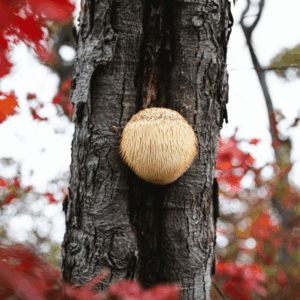
Cognitive Support and Brain Health
If you’re looking to sharpen your mind or protect long-term brain health, look no further than lion’s mane. This mushroom’s claim to fame is its ability to promote the production of Nerve Growth Factor (NGF), which helps neurons survive and thrive.
Early research suggests that lion’s mane may support memory retention, cognitive clarity, and even recovery from neurological injury. It also shows potential in helping prevent or slow the progression of neurodegenerative diseases such as Alzheimer’s and Parkinson’s.
Cordyceps and reishi can also indirectly support brain function by reducing fatigue and balancing mood. Overall, adaptogenic mushrooms offer a brain-friendly profile that supports everything from productivity to neuroprotection.
Energy, Endurance, and Athletic Performance
When it comes to physical energy and performance, cordyceps leads the pack. This mushroom has been studied for its effects on aerobic capacity, ATP production, and overall stamina. Athletes often use it to enhance endurance, improve oxygen utilization, and speed up recovery.
Unlike stimulants that provide a temporary energy spike followed by a crash, cordyceps supports a more sustained form of energy. It does this by helping cells generate energy more efficiently and supporting adrenal balance.
Maitake and lion’s mane may also offer secondary support for physical energy through metabolic and cognitive benefits, respectively. These fungi make excellent companions for anyone leading an active lifestyle or looking for a natural pre-workout boost.
Gut Health and the Microbiome Connection
Mushrooms and gut health are more closely connected than you might think. Many adaptogenic mushrooms contain prebiotic fibers that nourish the beneficial bacteria in your digestive tract. This leads to improved digestion, better nutrient absorption, and a stronger gut barrier.
Turkey tail, in particular, is rich in polysaccharides that selectively feed beneficial gut microbes. By supporting a diverse and balanced microbiome, these mushrooms indirectly boost everything from immunity to mental health, since the gut-brain connection is a two-way street.
Maintaining gut health is foundational to overall wellness, and adaptogenic mushrooms provide an easy and effective way to support that system.
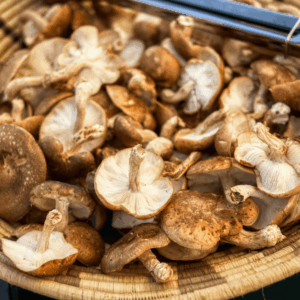
Are Adaptogenic Mushrooms Safe?
For most people, adaptogenic mushrooms are safe and well-tolerated. That said, it’s essential to choose high-quality products and follow appropriate dosing guidelines. Potential side effects are generally mild but may include digestive upset, allergic reactions, or interactions with medications.
People with autoimmune conditions should consult a healthcare provider before adding immune-modulating mushrooms like reishi or turkey tail to their regimen. Similarly, those on blood thinners or diabetes medication should proceed with caution, as some mushrooms can influence clotting or blood sugar levels.
When in doubt, start slow and pay attention to how your body responds. Quality and consistency go a long way in maximizing medicinal benefits while minimizing risk.
Mushroom Supplements: Powders, Capsules, and Tinctures
Adaptogenic mushrooms come in several convenient forms, each with its own potential benefits. Powders are versatile and can be added to smoothies, coffee, or meals. Capsules offer convenience and precise dosing. Tinctures provide rapid absorption and are easy to customize.
Each format has pros and cons:
- Powders: Great for daily use in food or drinks, but may have a strong taste.
- Capsules: Easy to use and flavorless, but may contain fillers.
- Tinctures: Fast-acting and customizable, but can be pricier.
Choose the form that best suits your lifestyle and taste preferences.
How to Choose a Quality Adaptogenic Mushroom Product
Not all mushroom supplements are created equal. When shopping for a product, look for the following:
- Fruiting body over mycelium: Fruiting bodies usually contain higher levels of biologically active compounds.
- Dual-extracted: This means the mushrooms were processed with both water and alcohol to extract all beneficial compounds.
- Organic and third-party tested: Ensures you’re getting a clean, potent product.
- Beta-glucan content listed: This is a good marker of potency.
Avoid products with vague labeling, proprietary blends, or excessive fillers. Transparency and sourcing matter when it comes to getting real benefits.
How to Incorporate Adaptogenic Mushrooms Into Your Routine
Adding adaptogenic mushrooms to your daily routine doesn’t have to be complicated. Many people enjoy them in morning coffees or matcha lattes, while others prefer capsules or tinctures taken with meals. The key is consistency.
For calming mushrooms like reishi, consider using them in the evening to wind down. For energizing types like cordyceps or lion’s mane, morning or midday use is best. Some people also experiment with stacking mushrooms—combining two or more for synergistic effects.
Whether you prefer a supplement or whole food approach, there’s a way to make these powerful fungi part of your wellness lifestyle.
What Does the Science Say? (Studies and Limitations)
Scientific research into adaptogenic mushrooms is growing, but many studies are still in early phases. For instance, lion’s mane has shown promise in promoting cognitive function in small human trials, while cordyceps has demonstrated benefits for athletic performance and oxygen utilization.
Reishi and turkey tail have been widely studied for immune modulation and potential anti-cancer effects, especially in Asia. However, limitations exist, including small sample sizes, short durations, and the use of animal models in many cases.
Despite these gaps, the body of evidence is growing, and the results so far are encouraging. Adaptogenic mushrooms appear to offer real benefits with minimal risks, especially when used as part of a broader wellness routine.

Final Thoughts: Are Adaptogenic Mushrooms Worth It?
Adaptogenic mushrooms are more than just a wellness trend—they’re a time-tested, science-backed way to support your body’s natural resilience. From reducing physical stress and improving mental clarity to supporting immunity and physical stamina, these fungi offer a comprehensive toolkit for modern health challenges.
While they’re not a cure-all, adaptogenic mushrooms can play a meaningful role in a well-rounded wellness routine. If you’re looking for a natural, low-risk way to feel more balanced, focused, and energized, they’re absolutely worth exploring.
Just remember: consistency is key, quality matters, and your body knows best. Start with one or two mushrooms, give it time, and see what happens when you let nature lend a hand.
Frequently Asked Questions
1. What is an adaptogen mushroom?
An adaptogen mushroom is a type of functional fungi that helps the body adapt to stress, restore balance, and enhance overall resilience. The term “adaptogen” refers to any substance—typically plant- or fungi-based—that stabilizes physiological processes and promotes homeostasis, especially in response to stress. Unlike traditional medications that target a specific symptom or condition, adaptogens work more holistically, supporting multiple systems in the body at once.
Adaptogenic mushrooms are a subset of these compounds and include species like reishi, lion’s mane, chaga, turkey tail, cordyceps, and maitake. Each one has a slightly different profile of benefits—some are more calming (like reishi), while others support cognitive function (like lion’s mane) or physical performance (like cordyceps). What they all have in common is their ability to assist the body in adjusting to stressors, whether physical, emotional, or environmental. They also contain bioactive compounds such as beta-glucans, triterpenes, and antioxidants that support immunity, mood regulation, and more.
These mushrooms are typically consumed in the form of teas, powders, tinctures, or capsules, making them accessible and easy to integrate into everyday wellness routines.
2. What are the side effects of mushroom adaptogens?
While adaptogenic mushrooms are generally well-tolerated and considered safe for most people, there are a few potential side effects and precautions worth noting—especially if you’re taking them for the first time or using them in higher-than-recommended doses.
Some of the most common side effects include:
- Digestive discomfort: Mild bloating, gas, or nausea can occur, especially when starting with a higher dosage or consuming mushroom powders without food.
- Allergic reactions: Though rare, some individuals may have allergic sensitivities to certain mushrooms. Symptoms can include skin irritation, itching, or respiratory issues.
- Drug interactions: Adaptogenic mushrooms may interact with medications, particularly those that affect the immune system, blood pressure, blood sugar, or blood clotting. For example, reishi and turkey tail have immunomodulatory effects and could interfere with immunosuppressive drugs.
- Fatigue or overstimulation: In some people, calming mushrooms like reishi may lead to excessive drowsiness if taken during the day, while energizing ones like cordyceps could feel overstimulating if taken too close to bedtime.
People with autoimmune conditions, bleeding disorders, or chronic health concerns should consult a healthcare provider before beginning a mushroom supplement regimen. Likewise, pregnant or breastfeeding individuals should proceed with caution, as the safety of many mushroom adaptogens during pregnancy has not been thoroughly studied.
As with any supplement, quality matters. Look for products that are organic, third-party tested, and made from the fruiting body of the mushroom rather than just the mycelium for maximum safety and efficacy.
3. What does adaptogen do to the body?
Adaptogens, including those derived from mushrooms, help your body manage and adapt to stress by modulating the hypothalamic-pituitary-adrenal (HPA) axis and the sympathetic nervous system—two of the key systems involved in the body’s stress response. Essentially, adaptogens function like a thermostat for your stress levels: they help calm you down when you’re anxious or rev you up when you’re fatigued, always aiming to restore balance.
Here are a few specific ways adaptogens influence the body:
- Stress regulation: Adaptogens help stabilize cortisol levels. Cortisol is your primary stress hormone, and when it’s out of balance, it can impact sleep, metabolism, immunity, and mood.
- Immune support: Many adaptogenic mushrooms contain beta-glucans and polysaccharides that prime immune cells, making them more responsive to threats without overreacting (important for avoiding autoimmune flare-ups).
- Neuroprotection: Some adaptogens—especially lion’s mane—support the production of Nerve Growth Factor (NGF), which aids in the growth and repair of nerve cells.
- Energy and endurance: Cordyceps, in particular, has been shown to enhance mitochondrial ATP production, improving cellular energy and physical stamina.
- Antioxidant action: Mushrooms like chaga are loaded with antioxidants that help protect the body from oxidative stress and reduce inflammation, which is linked to a range of chronic diseases.
The best part? Adaptogens don’t force the body in one direction or another; instead, they support your body’s ability to self-regulate. Over time, this leads to improved resilience, better focus, deeper sleep, and more stable energy levels—without the rollercoaster ride that stimulants or sedatives might bring.
4. Are adaptogens illegal?
No, adaptogens are not illegal. In fact, most adaptogenic mushrooms and herbs are widely available in the United States and many other countries as dietary supplements. You can find them in health food stores, online retailers, cafes (think: mushroom lattes), and even grocery stores. They’re sold in a variety of formats including capsules, powders, teas, and tinctures.
However, there are a few important legal and regulatory considerations to keep in mind:
- Regulation status: In the U.S., adaptogens fall under the category of dietary supplements, which are regulated by the FDA but not in the same way as pharmaceuticals. This means manufacturers are responsible for the safety and labeling of their products, but the FDA does not test or approve them before they go to market. As a result, quality can vary widely.
- Claims and labeling: While adaptogens are legal, companies are not allowed to make unverified medical claims (like “cures anxiety” or “treats breast cancer”). Products must be marketed with structure-function claims, such as “supports stress response” or “promotes mental clarity,” unless they’ve gone through FDA approval for disease treatment claims.
- Import/export restrictions: Although adaptogens are legal in most countries, certain mushrooms or herbs may be restricted or require import permits in others. It’s always smart to check local regulations if you’re ordering from or traveling internationally.
One point of confusion comes from mixing up adaptogenic mushrooms with psychedelic mushrooms (like psilocybin). Psilocybin is currently classified as a Schedule I controlled substance under U.S. federal law, though this is changing at the state level. Adaptogenic mushrooms, by contrast, do not contain psychoactive compounds and are fully legal for purchase and consumption.
In short: adaptogens are perfectly legal, widely available, and safe when used responsibly—just make sure to do your homework and choose quality sources.
5. Do adaptogens aid in cancer prevention?
Adaptogens are not a cure for cancer, but emerging research suggests that certain adaptogenic mushrooms may play a supportive role in cancer prevention and adjunctive care, thanks to their powerful immunomodulatory, antioxidant, and anti-inflammatory properties.
Some of the most promising adaptogenic mushrooms in this area include reishi, turkey tail, maitake, chaga, and shiitake. These mushrooms contain bioactive compounds—such as beta-glucans, polysaccharopeptides (like PSK and PSP), triterpenoids, and ergothioneine—that help stimulate immune cell activity, enhance natural killer (NK) cell function, activate tumor necrosis factor alpha, and reduce oxidative stress. These processes are all critical in protecting the body from cellular mutations and supporting the immune system in identifying and destroying abnormal cells before they proliferate.
For example:
- Turkey Tail has been extensively studied in Japan and China for its role in supporting immune function during chemotherapy and radiation, often used alongside conventional cancer treatments. Its PSK compound is even approved as an adjunct cancer therapy in Japan.
- Maitake has shown potential to enhance immune responses and support healthy cell cycle regulation, with some animal studies indicating a delay in tumor growth.
- Reishi has demonstrated antiproliferative effects in lab studies and is believed to help inhibit angiogenesis (the formation of new blood vessels that feed tumors).
- Chaga is known for its high concentration of antioxidants, which may neutralize free radicals—unstable molecules that contribute to DNA damage and potentially cancerous mutations.
That said, it’s important to note that while these findings are promising, most evidence comes from preclinical studies (test tubes and animals) or small-scale human trials. More rigorous, large-scale clinical research is needed before adaptogens can be officially classified as cancer-preventive agents.
If you’re considering incorporating adaptogenic mushrooms into your wellness routine for cancer prevention or support, it’s best to consult a healthcare provider, especially if you’re undergoing treatment or taking medications. Adaptogens may interact with chemotherapy drugs, blood thinners, or immunosuppressants.
In summary, while adaptogens are not a standalone solution, their immune-boosting, antioxidant, and anti-inflammatory properties make them a valuable ally in a broader, holistic approach to long-term health and cancer prevention.
6. What are mushroom polysaccharides?
Mushroom polysaccharides are complex carbohydrates found in the cell walls of functional mushrooms, best known for their powerful immune-supporting properties. The most well-studied are beta-glucans, which help modulate the immune system—stimulating it when needed and calming it when overactive. These compounds also have antioxidant and anti-inflammatory effects, making them key players in many of the health benefits associated with adaptogenic mushrooms.








